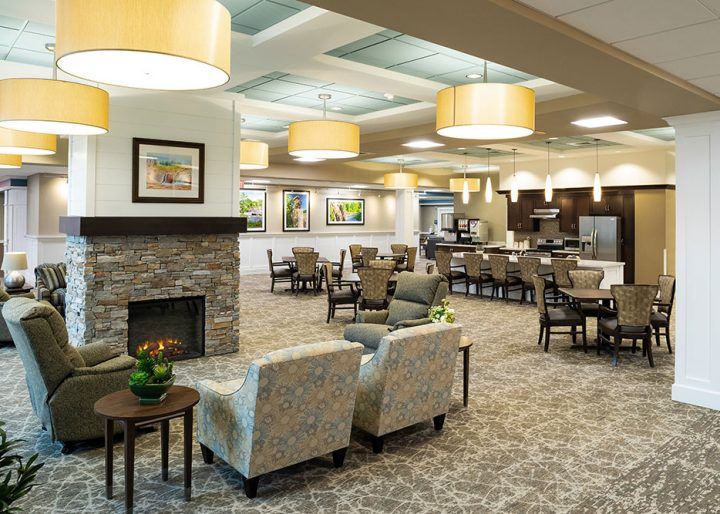Find dedicated Memory Care professionals providing personalized senior care.
Find dedicated Memory Care professionals providing personalized senior care.
Blog Article
How Helped Living Facilities Enhance Lifestyle for Those With Mental deterioration
The combination of appealing programs and household participation better improves the residents' experience. The complexities of dementia treatment proceed to advance, motivating a closer examination of just how these facilities adapt and innovate to fulfill the obstacles dealt with by citizens and their households.
Personalized Treatment Program
(Dementia Care Charlotte)In many cases, people with mental deterioration call for customized support that resolves their unique needs and preferences. Customized care plans are necessary in assisted living setups, as they make certain that each resident receives appropriate attention and services. These plans are developed collaboratively, including health care experts, caregivers, and family members to create an extensive summary of the individual's case history, cognitive capabilities, and personal passions.
A well-structured personalized treatment plan normally includes certain goals connected to health management, day-to-day tasks, and social interaction. It represents the individual's cognitive decline while advertising freedom and self-respect. Routine assessments and updates to the treatment strategy are important, as they enable modifications based upon the homeowner's progressing condition and preferences.
Trick elements of these plans often entail drug administration, behavioral support techniques, and nutritional standards customized to the individual's needs (Memory Care). By concentrating on personalized care, aided living centers can promote a supportive setting that improves the quality of life for people with dementia, ultimately adding to their general well-being and joy. This personalized approach respects the uniqueness of each homeowner, ensuring they obtain the caring treatment they need

Involving Activities and Programs
Involving residents in purposeful activities and programs is vital for enhancing the top quality of life for individuals with dementia. These tasks not only supply enjoyment however additionally stimulate cognitive feature and advertise social interaction, which can alleviate sensations of isolation commonly experienced by residents.

In addition, tailored programs are essential in ensuring that each citizen's special choices and capabilities are acknowledged. This tailored method motivates participation, improves self-worth, and supplies a sense of achievement.
Additionally, routine evaluations of locals' rate of interests can assist staff modify and adjust activities to far better match advancing demands. By focusing on engaging tasks and programs, aided living centers can substantially enhance the general experience and emotional health of individuals coping with mental deterioration.
Safe and Helpful Atmosphere
Creating a risk-free and helpful environment is crucial for people with dementia, as it directly influences their wellness and lifestyle. Assisted living centers are developed with specific attributes that advertise safety view it now while cultivating a feeling of safety and security and convenience. These atmospheres prioritize access, with designs that minimize complication and motivate freedom, enabling residents to navigate their environments much more easily.
Precaution, such as safe and secure entryways and leaves, stop wandering and unapproved access, which are important considerations for people with dementia (Memory Care). Team member are trained to acknowledge the one-of-a-kind needs of homeowners, giving tailored assistance and guidance to guarantee their safety. The unification of calming shades and acquainted things can help reduce stress and anxiety and disorientation, creating a much more soothing ambience.
Along with physical security, psychological assistance is paramount. Facilities typically use staff who are not only proficient in caregiving yet also trained in empathy and interaction, cultivating trust and rapport with locals. This alternative strategy adds to a caring environment where individuals feel valued and understood, eventually improving their general quality of life.
Social Interaction and Neighborhood
An encouraging setting not just focuses on safety and security yet additionally cultivates possibilities for social communication and community engagement, which are vital for individuals with dementia. In assisted living facilities, structured tasks and public rooms urge homeowners to get in touch with one an additional, lowering sensations of seclusion often experienced by those with cognitive disabilities.
Social communication plays a substantial role in enhancing psychological wellness and cognitive function (Assisted Living). Engaging with peers in team tasks such as video games, arts and crafts, or exercise not just boosts cognitive capacities however likewise nurtures a feeling of belonging. Facilities often arrange occasions that promote socialization, allowing homeowners to construct connections and share experiences, which can be particularly advantageous for those with dementia
Additionally, a dynamic area atmosphere can boost the overall top quality of life for locals. Team members are educated to facilitate interactions and support homeowners in forming significant links.
Household Participation and Support
Family participation is important in supporting people with mental deterioration in assisted living atmospheres. Proactively involving family participants not just offers psychological comfort to citizens but likewise cultivates a sense of belonging and continuity in their lives. When households join care planning and day-to-day tasks, they contribute important insights regarding the person's preferences, history, and needs, which can improve tailored care.
Furthermore, routine family members visits can substantially boost the psychological well-being of locals, minimizing sensations of seclusion and anxiousness. Household participants can additionally aid in maintaining cognitive function by engaging their loved ones in familiar conversations and activities. This interaction strengthens personal identification and aids homeowners really feel valued and understood.

Final Thought
In conclusion, helped living facilities substantially enhance the top quality of life for individuals with mental deterioration through individualized care strategies, engaging tasks, and a secure atmosphere. Jointly, these elements develop an alternative approach to care that addresses the special demands of individuals with mental deterioration, promoting general well-being and self-respect.
Report this page